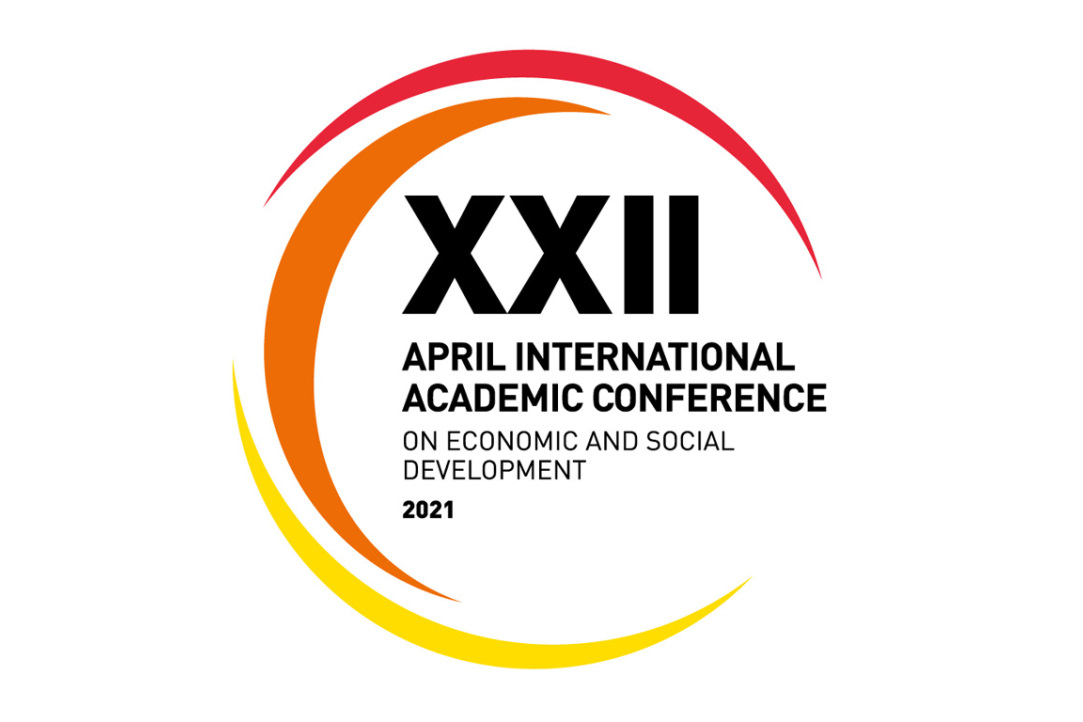HSE April Conference: Universities Reinforce the Links between Academia, Businesses, and Society

From April 13 – 16, 2021, the international academic symposium ‘Foresight and Science, Technology and Innovation Policy’ will take place as part of the XXII April International Academic Conference in Moscow. At the symposium, representatives of leading Russian and international academic centres and universities will present the results of their programme studies. Many papers will examine the transition of knowledge to new technologies, their impact on people’s lives, and the growing demand for research reinforcement not only in times of crisis.
‘Due to COVID-19, many people’s attention involuntarily focuses on the topic of the future,’ says Alexander Sokolov, head of the symposium’s programme committee, Director of Foresight Centre and Deputy Director of the HSE Institute for Statistical Studies and Economics of Knowledge (ISSEK). ‘Its images and scenarios are most often presented and studied in the perspective of technologies that evolve based on the new knowledge produced by academic research. We and our colleagues have forecasted prospective research and development for decades now, and we are noticing a growing social agenda in foresight studies, not only in the recent year. This trend requires new approaches to the organization of foresight research and its methods and tools, including those aimed at answering massive challenges such as a pandemic. How can new technologies improve the lives of individuals and society at large? Are they capable of even bringing immortality? The last paradoxical question has been comprehensively investigated by our long-time friend and colleague José Cordeiro from Singularity University, USA, in his international best-selling book, The Death of Death, which will be published in Russia soon. The first public presentation of this book in Russian will take place as part of the symposium.’
Foresight is attracting a wider and wider circle of researchers, which is particularly evident in projects that support the development of regions and local cities. A panel with participants from Great Britain, South Africa and some other countries, chaired by Ozcan Saritas, Head of the ISSEK Laboratory for Science and Technology Studies, will share their successful experiences of attracting the collective brainpower for local transformations. A specific block of sessions will discuss the priorities of science, technology, and innovation policy in the countries of the Eurasian Economic Union (EAEU) and the prospects of creating a system of S&T forecasting and cluster cooperation in the EAEU.
Many technologies have a delayed effect, which comes into force in 10-15 years and more. What measures and principles of S&T policy promote sustainable development in societies, economies, and specific industries in a long-term perspective? One of the symposium’s roundtables will be dedicated to the implementation of the Forecast of S&T Development in the Agro-Industrial Complex up to 2030 in view of post-COVID challenges and mutual goals to provide Russia’s food security. The event will be moderated by Alexander Chulok, Director of the HSE ISSEK Centre for Science and Technology Foresight.
According to studies by HSE researchers, the scope of Russian companies’ innovation activities is still small. Companies do not believe innovation to be a way to success and poorly collaborate with research centres and universities. How can the Russian economy’s technological dependence on imported solutions be decreased? How an effective national system of innovation that includes a wide range of various stakeholders be built? These questions will be tackled by participations of two symposium sessions moderated by Dirk Meissner, Head of the ISSEK Laboratory for Economics of Innovation, and Mikhail Gershman, Deputy Director of the ISSEK Centre for Science, Technology, Innovation and Information Policy.
The ISSEK Russian Cluster Observatory (RCO) is organizing expert discussions on Russian regions’ and cities’ development according to the smart specialization model. These will include the first public presentation of the Atlas of Economic Specialization of Russian Regions, discussing the draft Concept of Creative Industries’ Development in Russian Cities, and a brainstorm to determine the key areas of Moscow’s innovative development up to 2030. The events will be moderated by Evgeniy Kutsenko, Director of RCO and member of the Board of Directors at TCI Network.
The symposium will bring together participants representing leading research centres from about 20 countries who will participate remotely. A detailed programme of the symposium and the agenda of other events of the XXII April International Academic Conference is available here.
Some of the symposium’s topics will be covered at the session ‘Does Russian academia need a new model?’, which will take place on April 23 as part of the HSE/SBER Discussion Club. Its participants will discuss the plenary talk ‘Post-Pandemic Russia’s S&T Policy: Search for New Solutions’.
In addition, on April 12, an international symposium ‘Application of Big Data Analysis for Trend Spotting Related to the Development and Use of Human Capital’ will take place, and on April 21 — the Science and Innovation session as part of the XXII April Conference main programme.
The conference’s general information partners are TASS and the Russia-24 TV channel. The event’s general news agency partner is RIA Novosti, while its strategic partners are IA Interfax and Anews. Its general radio partner is Business FM. Media partners include: Rossiyskaya Gazeta, MIC Izvestia, VTimes, News.Ru, SNOB, Indicator.Ru, Profile magazine, Parlamentskaya Gazeta, Finam.ru, Invest-Foresight, Econs.online , the telegram channel ‘Scientific and Educational Policy’, Polit.ru, Scientific Russia, Strategy magazine, the Agency of Social Information, and Industry of Eurasia magazine.
For more information on these events, please contact HSE University’s press service: press@hse.ru.
Media accreditation to the XXII April Conference is available here.

